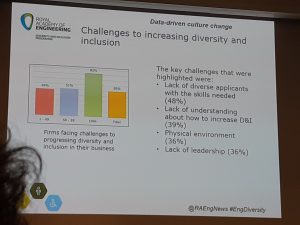About the Author:
Ian Hower is a research associate in the  Faculty of Science, Agriculture & Engineering at Newcastle University. With a background in policy, Ian’s research surrounds the policy and market frameworks for the UK energy system.
Faculty of Science, Agriculture & Engineering at Newcastle University. With a background in policy, Ian’s research surrounds the policy and market frameworks for the UK energy system.
Contact details: supergenEN@newcastle.ac.uk
Supergen Energy Networks Hub brought together a group of stakeholders in May 2019 to discuss the future of energy markets and regulation. The stakeholders included:
- academia such as Professor Furong Li of the University of Bath and Professor Michael Pollitt of the University of Cambridge
- regulators such as Marcia Poletti of Ofgem
- industry representatives including Chris Harris of NPower and Nigel Turvey of Western Power Distribution
- early career researchers (ECRs) from University of Oxford, Imperial College and University of Bath
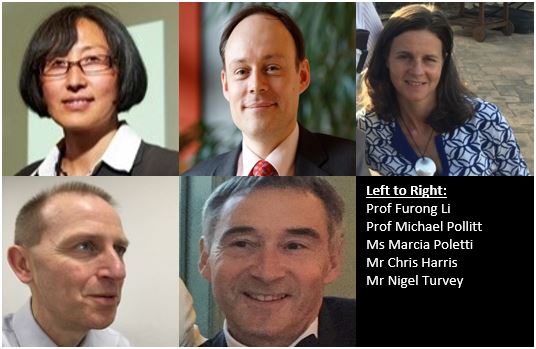
Each presenter gave a slightly different view on the same theme. They acknowledged the need for increased flexibility, the challenge of decarbonising heat, power and transport, and the current barriers to creating an efficient and renewable future energy system posed by current pricing and regulatory challenges. Each also put forward their view of research activities and forward thinking how best to overcome some of the barriers.
Marcia Poletti of Ofgem highlighted the principal foci for regulating the energy industry going forward; independent decision making, broader consumer protection and greater use of markets and price signals. Regulators are especially interested in the information behind the price signals as the data indicate where investment and regulation are needed. They expect significant movement toward more granular data and thus more granular pricing.
In this evolution, not only will massive changes need to be made to physical infrastructure, but questions about who will have access to data, markets and prices will also need to be addressed. For consumers to fully engage in demand side response, they need to be exposed to the sharp price signals. To aid this, Chris Harris of NPower argued that there should be a liberalisation of who can contract with whom, but cautioned that this process must be done slowly to prevent a free-for-all and unjust market capture. He also advocated that prosumer contracts should be fed into balancing and settlement, for the same reasons wholesale energy contracts are included in balancing and settlement.
This begs the question of how best to ‘liberalise’ the market to allow more granular price signals to reach consumers, while ensuring equity and justice. How can we both liberalise the market while also ensuring the market is fully incentivised to meet the ‘Net Zero’ emission targets?
Attempting to harmonize how future retailers can understand customers’ network needs and optimise capacity at least cost, Harris argued that demand side response (DSR) is the number one priority for Distribution Network Operators (DNOs) and the wider system going forward. Harris critiqued the techno-optimist view that technology alone can successfully address climate change, arguing there are no models, predictions or calculations that get us to the 2050 carbon goals without significant demand side response. To achieve this, Harris suggests that we must develop decentralised democratised markets to meet the evolving needs of energy supply and demand. In doing so, he suggested changes in both the regulatory market architecture and culture that would move the UK away from price socialisation, something that resonates with Ofgem’s call for increased price signals and competition.
Nigel Turvey of Western Power Distribution (WPD) discussed how DNOs will adapt to this new future, and the plans for preventing possible conflicts of interest between asset solutions and the use of third-party flexibility by separating DSO activities into a separate management structure.
Michael Pollitt also gave insights into his current thinking on ancillary service markets, namely that companies operating in this space need to be more transparent and that there should be more oversight of this. Pollitt was especially concerned about the dual impact of domestic PV and wider adoption of EVs on the burden of fixed costs. He discussed research which showed those with solar will pay a lower portion of the system’s fixed costs under current charging methodologies.
Pollitt’s broad argument acknowledged that the UK is one of the few countries to have a fully privatised energy network, and thus the massive changes that are coming to the industry need to coincide with regulators ensuring that the benefits of these changes are equitably distributed to consumers and society, not just shareholders. He also emphasised that the benefits of a faster, smarter connection need to be shared out better, in a way that all parties, (particularly DNOs and wider society) clearly benefit.
Furong Li discussed how network capacity could be provided under differing demand flexibility and uncertainty, to underpin a new philosophy in network access arrangement in a highly uncertain energy future. She highlighted key drivers for the new philosophy as flexibility shifting from the central to regional and local system, and an increase in instruments in providing distribution network capacity. Li identified a number of key research questions:
-
- How to factor differing capacity provisions/increased optional efficiency into network pricing?
- How to quantify ‘value of wait’ for an investment option with differing/changing levels of generation and load uncertainty?
- How to quantify/estimate current and future operational capability from differing degrees of network and customer flexibility?
- What are the key drivers to determine the right balance between cost recovery from network investment and network operation?
ECRs were also given the opportunity to present their latest research findings in flexibility markets:
- Thomas Morstyn – on liquidity and granularity questioning whether prosumers can provide flexibility for the system, and emphasising the importance of markets staying interconnected.
- Dimitrios Papadaskalopoulos – on assessing the value of flexibility, and the modelling needed to move from a centralised to a distributed optimisation. He highlighted the dangers of group think as illustrated by the 01.30 peak that emerged with the introduction of Economy 7.
- Antonio de Paola – on the capability of thermostatic loads acting in energy frequency markets.
Ran Li – on the importance of price elasticity in electricity supply, or the lack of it! He believed that attitudes and technological change were key.
Overall, the themes that arose from the event surrounded the massive changes anticipated for the system, and how best to prepare with minimise energy cost and carbon emissions through energy transition.
- There are significant shortcomings in the current market, network access and regulation, and missing market components to minimise the cost of low carbon transition, cope with uncertainty, and ensuring customers benefits
- Interestingly, both Harris and Pollitt – and later the rest of the attendees – agreed
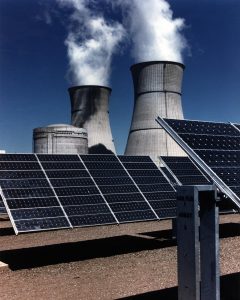 that the biggest technical challenge facing the UK is the decarbonisation of heat, where electrical systems could play a key role.
that the biggest technical challenge facing the UK is the decarbonisation of heat, where electrical systems could play a key role. - In Harris’ words, the substantial energy policy decision of our generation is “what gas will flow through what pipes in 2050”.
- Meanwhile, the transition to renewable sources of energy in the power and transport sectors are already well underway.
- To help encourage these positive changes – and to ensure that the benefits are spread equitably throughout society – proper pricing, access to network and regulations are needed.
- Various ideas for what form these pricing methods and regulations should take were put forth, including new ways of capturing costs currently omitted from pricing methods such as carbon emissions and constraint costs.
It also became clear through the course of the event that the various players in the industry will have to work together on a deeper level than they do today. To fully extract the benefits of a carbon-neutral energy industry, players will have to collaborate to fully engage each other’s efficiencies and flexibilities to help ensure security of supply and decarbonisation, while also helping contribute to the economy and keeping costs down for consumers. However, underpinning all of this is the primary concern expressed by all stakeholders was that everyone must work to ensure that this increase in collaboration, marketisation, and decarbonisation provides real and noticeable benefits to every corner of the UK.
Further information on the workshop and access to presentations can be found here.
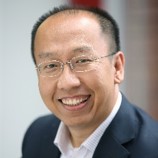 Jianzhong Wu is a Professor of Multi-Vector Energy Systems and Head of Department of Electrical and Electronic Engineering at
Jianzhong Wu is a Professor of Multi-Vector Energy Systems and Head of Department of Electrical and Electronic Engineering at  Karolina Rucinska is a PhD student and a research assistant at Cardiff University and provides administrative support to the Hub at Cardiff University.
Karolina Rucinska is a PhD student and a research assistant at Cardiff University and provides administrative support to the Hub at Cardiff University.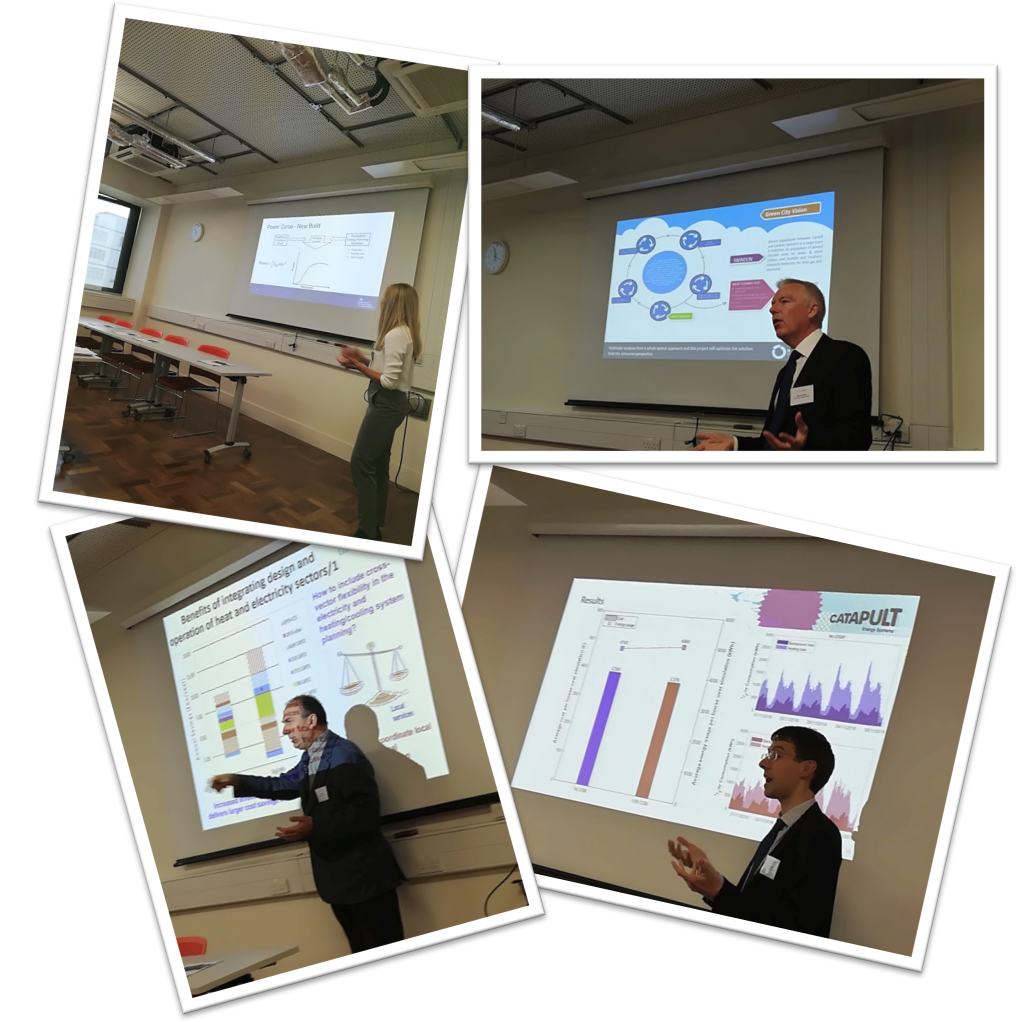
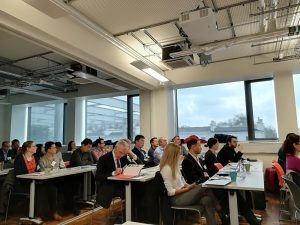 The suggestions were to focus on demonstration projects, modelling of extreme events as well as the design of simpler but interconnected models among other things. Moving forward, the participants expressed an interest in another set of such workshops, with a focus on balancing the needs of the local and national systems.
The suggestions were to focus on demonstration projects, modelling of extreme events as well as the design of simpler but interconnected models among other things. Moving forward, the participants expressed an interest in another set of such workshops, with a focus on balancing the needs of the local and national systems.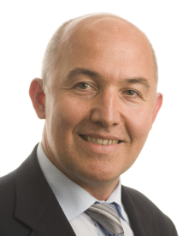 £5 million EPSRC funded
£5 million EPSRC funded 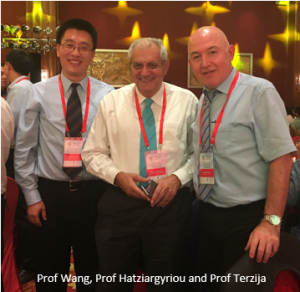 of topics and I was privileged to meet two of my respected colleagues, who are currently acting Editors in Chief of the hey(? Need to check this with VT) journals relevant for our profession: Prof Nikos Hatziargyriou (IEEE Transactions on Power Systems) and Prof Jianhui Wang (IEEE Trans on Smart Grid). We exchanged our experiences in leading our international journals and discussed how to incorporate, in our journals, results relevant to multi-energy systems/networks.
of topics and I was privileged to meet two of my respected colleagues, who are currently acting Editors in Chief of the hey(? Need to check this with VT) journals relevant for our profession: Prof Nikos Hatziargyriou (IEEE Transactions on Power Systems) and Prof Jianhui Wang (IEEE Trans on Smart Grid). We exchanged our experiences in leading our international journals and discussed how to incorporate, in our journals, results relevant to multi-energy systems/networks.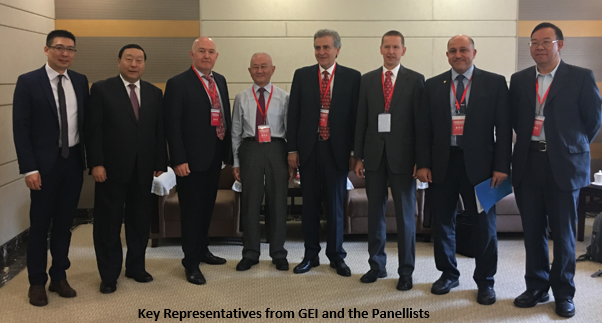
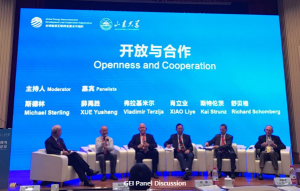 industry and global society. In this context, I elaborated the concept in which the benefits for the global society should be enabled through joint collaborative work between industry and academia. This collaboration should be fair, open and honest. Industry can help academia to shape the directions of the university research activities, putting to the top of agenda the interest of the society we are leaving in. A typical example are efforts towards reduction of CO2 emission, or optimal operation of multi-energy systems. I particularly discussed the advantages of integration of massive power systems across the globe. In my address, I just reminded the respected audience that e.g. when it comes to solar energy, it is always somewhere available and could be used anywhere in the World, or stored locally, or somewhere remotely.
industry and global society. In this context, I elaborated the concept in which the benefits for the global society should be enabled through joint collaborative work between industry and academia. This collaboration should be fair, open and honest. Industry can help academia to shape the directions of the university research activities, putting to the top of agenda the interest of the society we are leaving in. A typical example are efforts towards reduction of CO2 emission, or optimal operation of multi-energy systems. I particularly discussed the advantages of integration of massive power systems across the globe. In my address, I just reminded the respected audience that e.g. when it comes to solar energy, it is always somewhere available and could be used anywhere in the World, or stored locally, or somewhere remotely.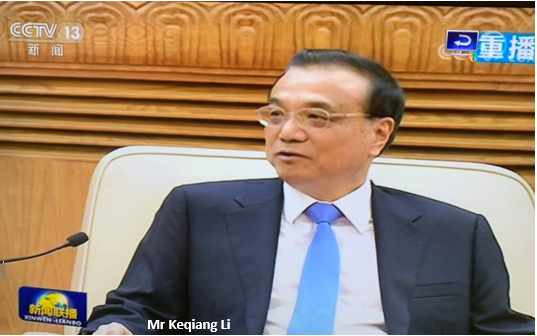
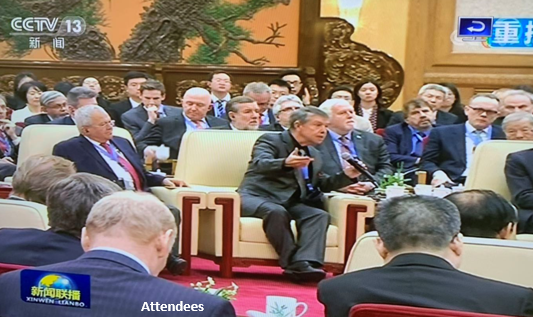
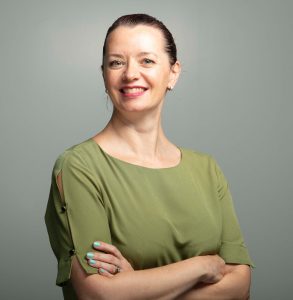 of the £5 million EPSRC funded Supergen Energy Networks Hub. Additionally she is also Associate Director and Co-Investigator at
of the £5 million EPSRC funded Supergen Energy Networks Hub. Additionally she is also Associate Director and Co-Investigator at 